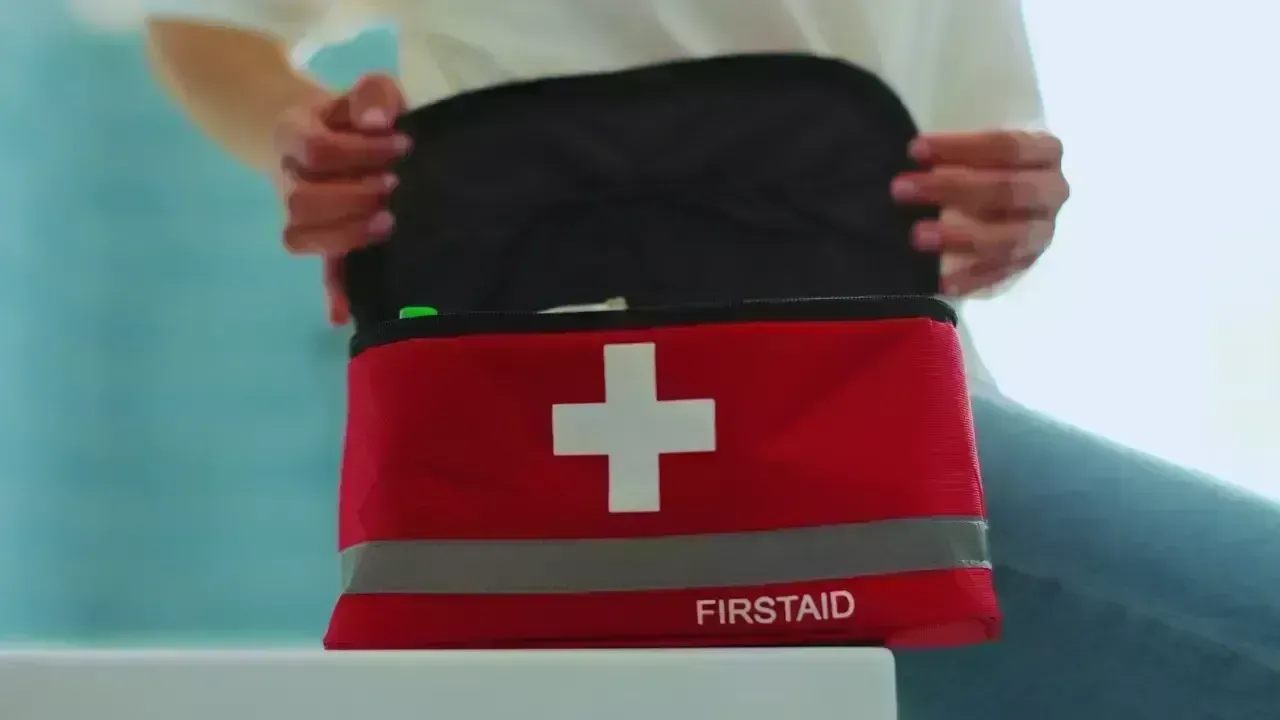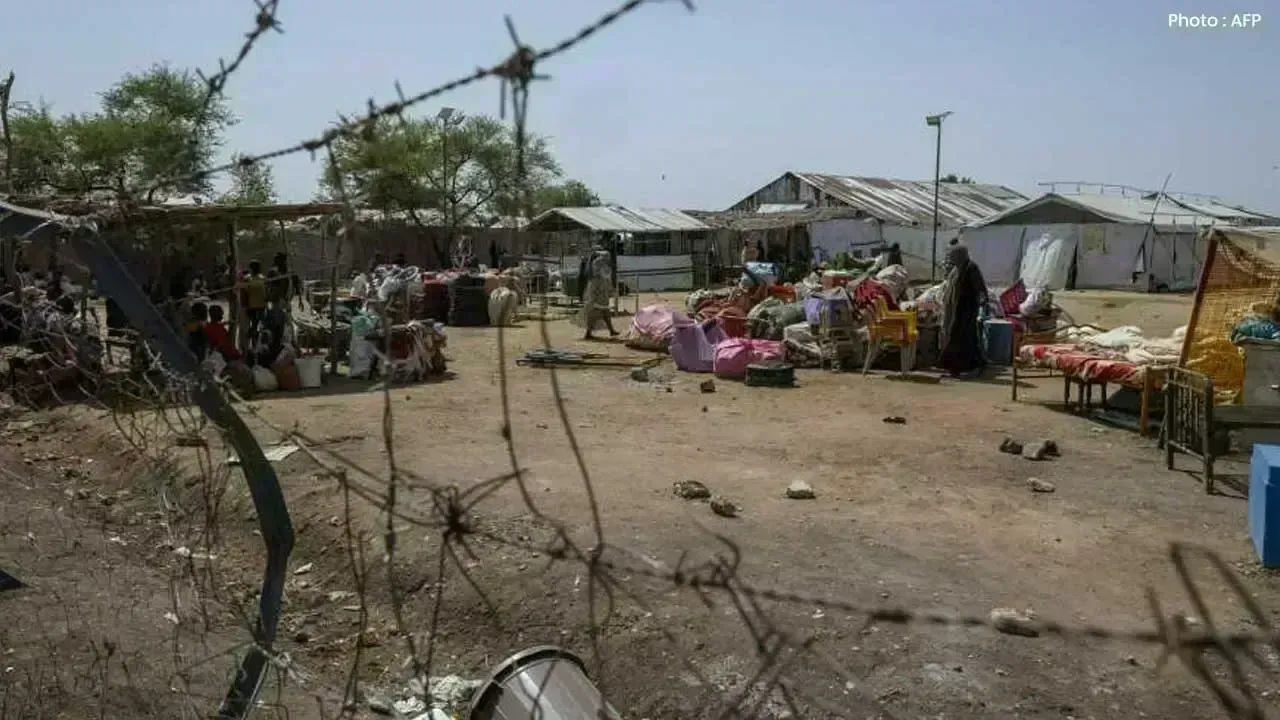
Post by : Anis Al-Rashid
Why First-Aid Recommendations Have Evolved
Recent health advisories emphasize that families must refresh their first-aid setups. Various factors, such as increasing reliance on electronic devices, changing weather patterns, and the rise of remote work and schooling, have introduced new risks at home.
Health professionals now recommend reevaluating first-aid kits, refining emergency plans, and adopting new practices aligned with today’s realities. This updated approach ensures families are prepared to manage sudden injuries and health issues effectively.
The Need for Enhanced First-Aid Practices
Old first-aid practices may not be equipped to handle today’s challenges. New findings about wound treatment, allergic reactions, and infection control underscore the necessity of modernized first-aid strategies to help families:
Being prepared makes a significant difference during emergencies.
Today's Families Face New Risks
Modern households present unique challenges, including the presence of lithium-battery devices, various kitchen appliances, and pet-related hazards. Work-from-home setups introduce additional risks like cable tripping hazards and ergonomic issues.
These changes necessitate a fresh approach to first-aid readiness.
1. Update First-Aid Kits with Essential Items
Many still rely on outdated first-aid kits filled with expired items. Fresh guidance suggests a complete overhaul to meet modern needs.
A well-stocked first-aid kit should now include:
Ensure to store all items in a waterproof container and check expiration every three months.
2. Focus on Burn-Care Supplies
Burns are frequent accidents, especially in kitchens. New guidelines highlight the importance of having proper burn-care materials, such as:
Applying cool water to burns is crucial first aid, followed by clean dressings.
3. Keep Child-Safe Medications Clearly Stored
Separate storage for child medications is essential to prevent mishaps. Child-safe medications should be:
This is particularly important in homes with young children.
4. Organise First-Aid Supplies for Quick Access
A well-organised first-aid kit speeds up response times in emergencies. Here are a few organizational tips:
This can make a difference during critical instances.
5. Prepare for Minor Injuries
With an increase in home workouts, sprains and strains are more common. Families should keep:
These tools are critical for stabilizing injuries before professional help can be obtained.
6. Stock Allergy Relief Essentials
With rising allergens, families should have:
Clear instructions for managing severe reactions are vital for those affected.
7. Assemble Eye Care Supplies
Eye injuries can happen unexpectedly. Essential items include:
Houses using cleaning agents should have these readily available.
8. Embrace Digital Preparedness
Digital tools are vital for emergency readiness. Families should consider:
These resources enhance the efficiency of first-aid responses.
9. Train Family Members in Basic First-Aid Skills
A first-aid kit is only as good as the knowledge behind it. Families should learn:
Training can occur through sessions or visual guides.
10. Maintain Emergency Sheets for Family Members
Have an easily accessible emergency sheet for each family member with detailed information, such as:
Keep this information updated and accessible.
11. Distribute First-Aid Supplies Around the House
It's advisable to keep first-aid items in multiple spots for quick access, including:
This can save precious time during accidents.
12. Create a Child-Friendly First-Aid Station
For homes with children, establish a safe mini-station that includes:
This helps parents react swiftly to minor injuries.
13. Know When to Seek Professional Help
Recognizing when to go beyond home care is vital. Watch for warning signs such as:
Quick recognition can lead to timely medical intervention.
14. Foster a Culture of Safety Awareness
Safety is about prevention. Families should practice safety habits like:
A proactive mindset can significantly reduce emergencies.
15. Communicate Clearly During Crises
Staying calm in emergencies is key. Work on:
Staying composed is one of the best first-aid measures.
Understanding the Importance of These Updates
These new guidelines reflect modern living challenges. Being prepared helps reduce fear and enhances safety during unexpected incidents.
Simple updates and consistent habits can have a life-saving impact.
Looking Forward: Families Boosting Preparedness
With growing awareness, families are making first-aid readiness a part of their routine, much like food and utilities. This shift leads to a safer and more prepared society.
Disclaimer:
This article is for general informational purposes only. It is not a substitute for professional medical advice, diagnosis, or treatment. Individuals should consult certified healthcare professionals for personalized guidance.










Gabba Curator Ensures Balanced Conditions for Ashes Test
Gabba's pitch for the second Ashes Test is set to support both batters and bowlers, promising an exc

Hazlewood and Cummins Step Up Training for Ashes Showdown
Josh Hazlewood and Pat Cummins bolster Australia's pace attack as they intensify training ahead of t

Kings Defeat Senators 2-1, Securing Season Sweep
The Kings clinched a 2-1 victory over the Senators, with Clarke scoring the decisive goal as Kuemper

Florida Panthers Triumph Over Nashville Predators with 8-3 Victory
Florida Panthers dominated Nashville Predators with an 8-3 win, highlighted by A.J. Greer's stellar

Kyrgios to Compete in Kooyong Classic Before 2026 Australian Open
Nick Kyrgios is ready to make his comeback at the Kooyong Classic, preparing for the 2026 Australian

South Africa Sets India a 549 Run Chase After Second Innings Declaration
South Africa declared at 269-5, setting India a daunting 549-run target. Tristan Stubbs scored 94 wh